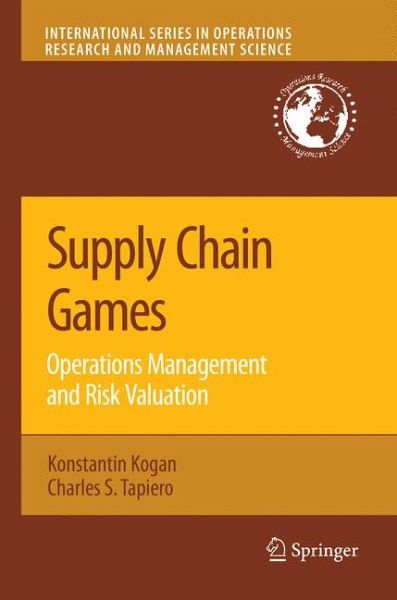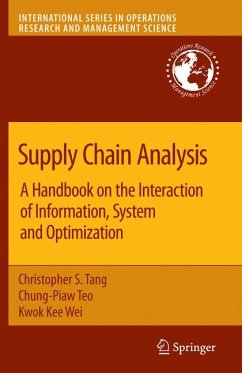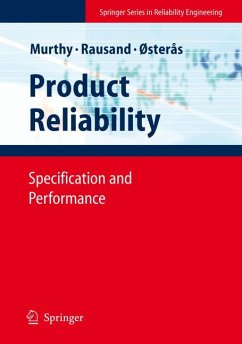
Supply Chain Games: Operations Management and Risk Valuation (eBook, PDF)
Versandkostenfrei!
Sofort per Download lieferbar
72,95 €
inkl. MwSt.
Weitere Ausgaben:

PAYBACK Punkte
36 °P sammeln!
In today's global economy, supply chains are an essential ingredient to corporate survival and growth. Operations strategy in supply chains must assume an ever-expanding and strategic role of risks that modern enterprises face when they operate in an interdependent supply chain environment. These operational and strategic facets entail a brand new set of operational problems and risks that have not always been understood or managed very well. It falls to supply chain managers to identify and to educate corporate managers on what these critical operational problems and risks involve. Supply Cha...
In today's global economy, supply chains are an essential ingredient to corporate survival and growth. Operations strategy in supply chains must assume an ever-expanding and strategic role of risks that modern enterprises face when they operate in an interdependent supply chain environment. These operational and strategic facets entail a brand new set of operational problems and risks that have not always been understood or managed very well. It falls to supply chain managers to identify and to educate corporate managers on what these critical operational problems and risks involve. Supply Chain Games: Operations Management and Risk Valuation provides business students and practitioners with the means to understand, to model and to analyze these outstanding issues and problems that are the essential elements in managing supply chains today.
Dieser Download kann aus rechtlichen Gründen nur mit Rechnungsadresse in A, B, BG, CY, CZ, D, DK, EW, E, FIN, F, GR, HR, H, IRL, I, LT, L, LR, M, NL, PL, P, R, S, SLO, SK ausgeliefert werden.













